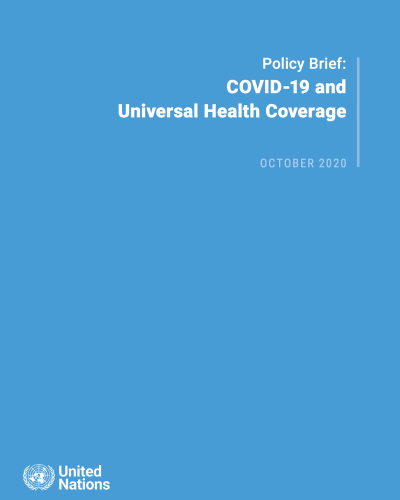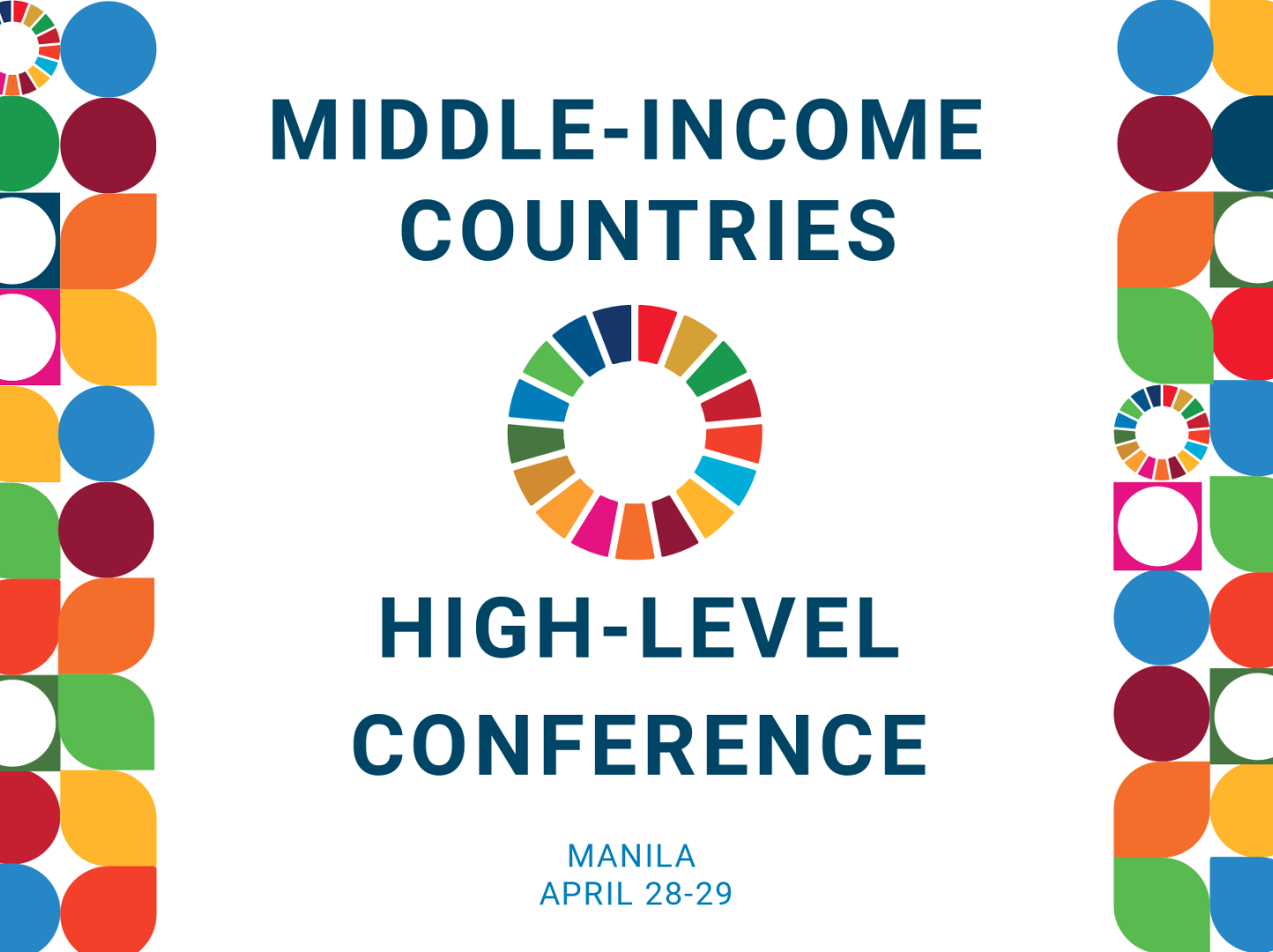Publication
Secretary-General's Policy Brief: COVID-19 and Universal Health Coverage
07 October 2020

This new Policy Brief by the Secretary-General explores the issue of Universal Health Coverage in the context of COVID-19 and highlights how critical it is to enable an effective response to the pandemic.
The brief assesses the current global situation regarding COVID-19 and argues that although there were successes earlier this summer in containing the virus, cases are now surging globally which requires the continued implementation of basic public health measures.
KEY MESSAGES
- Nine months since we first heard of COVID-19, the pandemic has claimed more than one million lives and infected more than 30 million people worldwide. Infections are rising and there are troubling signs of new waves.
- The pandemic has revealed inadequate health systems, yawning gaps in social protection, major structural inequalities within and between countries, and foremost how ill-prepared the world is to cope with a global pandemic. Never before have strong and resilient health systems been more crucial, lending greater urgency to the quest for universal health coverage (UHC).
- Under-investment in health can have a devastating impact on societies and economies. The pandemic is costing the global economy $375 billion a month. Some 500 million jobs have been lost so far. Human development is going into reverse, for the first time since we started measuring it in 1990.
- Health is a fundamental human right and universal health coverage is a critical tool for achieving health for all. Yet, at least half of the world’s population still do not have full coverage of essential health services and over 800 million people spend at least 10% of their household budgets to pay for health services.
- All countries have agreed to work towards UHC as part of the 2030 Agenda for Sustainable Development. This Policy Brief is being launched one year after world leaders endorsed the first ever General Political Declaration on Universal Health Coverage and commitment to health for all. But that Declaration is now under threat from the pandemic.
- This policy brief outlines five major recommendations:
- Urgently control further transmission of COVID-19 through proven public health measures and a coordinated global response.
- Protect the delivery of other essential health services during the pandemic. The pandemic has disrupted the provision of essential everyday interventions needed to address infectious diseases and cancer, heart disease and other non-communicable diseases. Access to mental health services and sexual and reproductive health programmes cannot be compromised.
- Ensure everyone, everywhere has access to future COVID-19 vaccines, tests and treatment. Funding the groundbreaking ACT-Accelerator is the fastest way to end the pandemic.
- Achieve Universal Health Coverage. This requires governments to step up investment in common goods for health, such as surveillance, procurement and supply chain, and risk communications. It also requires public health programmes to be inclusive and equitable, without financial barriers as much as possible. Accessing health services should not depend on financial status.
- Strengthen pandemic preparedness and response as a global public good. This will require large-scale investments at both national and global level and requires the involvement of all sectors of society.
Published by
UN
Related Resources
Resources
14 October 2025



